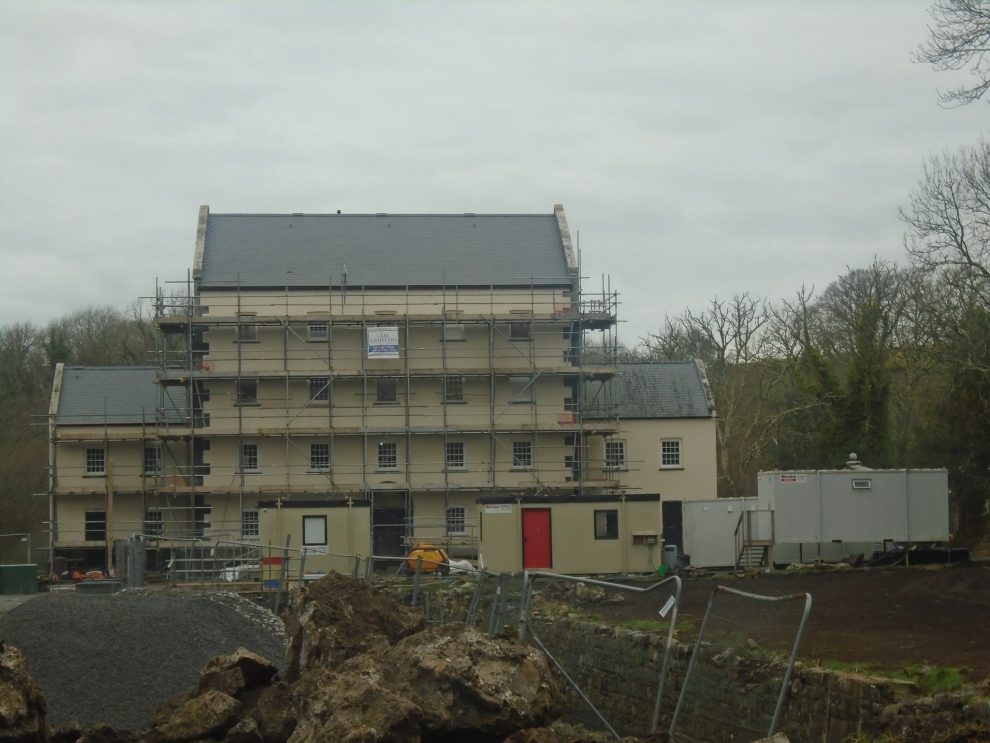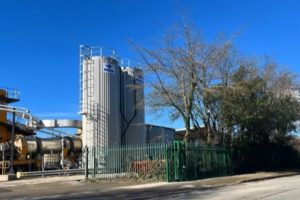Bluestone National Park Resort has strongly refuted claims that Pembrokeshire’s Grade II* listed Black Pool Mill is set to become a watersport centre.
The rumours emerged over the weekend when social media speculation claimed that ‘the watersport centre will ruin the tranquillity of the area and destroy the rich wildlife and ecosystems of the river’.
The claims, which prompted strong criticisms from Facebook users, have been strongly contested by Bluestone.
“We’re not sure where the rumours have come from as it’s already been widely publicised that the mill will be for a new heritage dining venue,” a spokesperson told The Herald this week.
The mill, which is situated near Canaston Bridge near Narberth, is a rare architectural example of an historic industrial building that has survived the centuries whilst remaining virtually intact. It was built in 1813 on the site of a 17th century ironworks.
In his 1968 memoir ‘As Far as the Tide Flows’, former tenant miller W G Pike claimed the name Blackpool was derived from a deep pool in the river on which the mill was built. He estimated it was approximately 15ft deep and always appeared black, making it impossible to see the bottom even when the conditions were favourable.
The mill, which lies in a Site of Scientific Interest and a Special Area of Conservation, was purchased by Bluestone soon after the resort was established in 2008 and plans were swiftly put into place to restore the building into a heritage dining experience complete with private dining rooms, a banqueting room and bars. The cost of the total restoration project is estimated to be in the region of £2.5 million.
The change of use application to restore the mill into a heritage restaurant and create a cafe and exhibition space in the adjacent cottage and forge building was approved by Pembrokeshire Coast National Park’s planning authority in 2020. Sensitive preservation and restoration work began shortly afterwards by Carl Griffiths Building and Groundworks, and developers insist that the work has focused on bringing many of the mill’s original features back to their original glory.
“Black Pool Mill has a rich history in the area and ever since Bluestone was established in 2008, the Mill has been at the heart of our plans as part of our ongoing investment,” commented Liz Weedon, head of projects at Bluestone.
“Our vision has always been to restore the structure back to its original state through the preservation, restoration, and transformation, and I’m pleased to say that we’re now reaching the final stages.”
It is anticipated that once re-opened, the Black Pool Mill will subsequently be a major employer in the area with an estimated 35 jobs being made available in skilled hospitality and management.
The restaurant aims to work closely with local producers and suppliers to create a heritage-rich menu, using produce and ingredients which are grown and sourced freshly throughout the area.
Dining will be provided on the ground and first floors with the state-of-the-art kitchen on the second floor and a third floor banqueting area with bar and private dining rooms.
The restoration project is expected to be completed later this Spring.

















